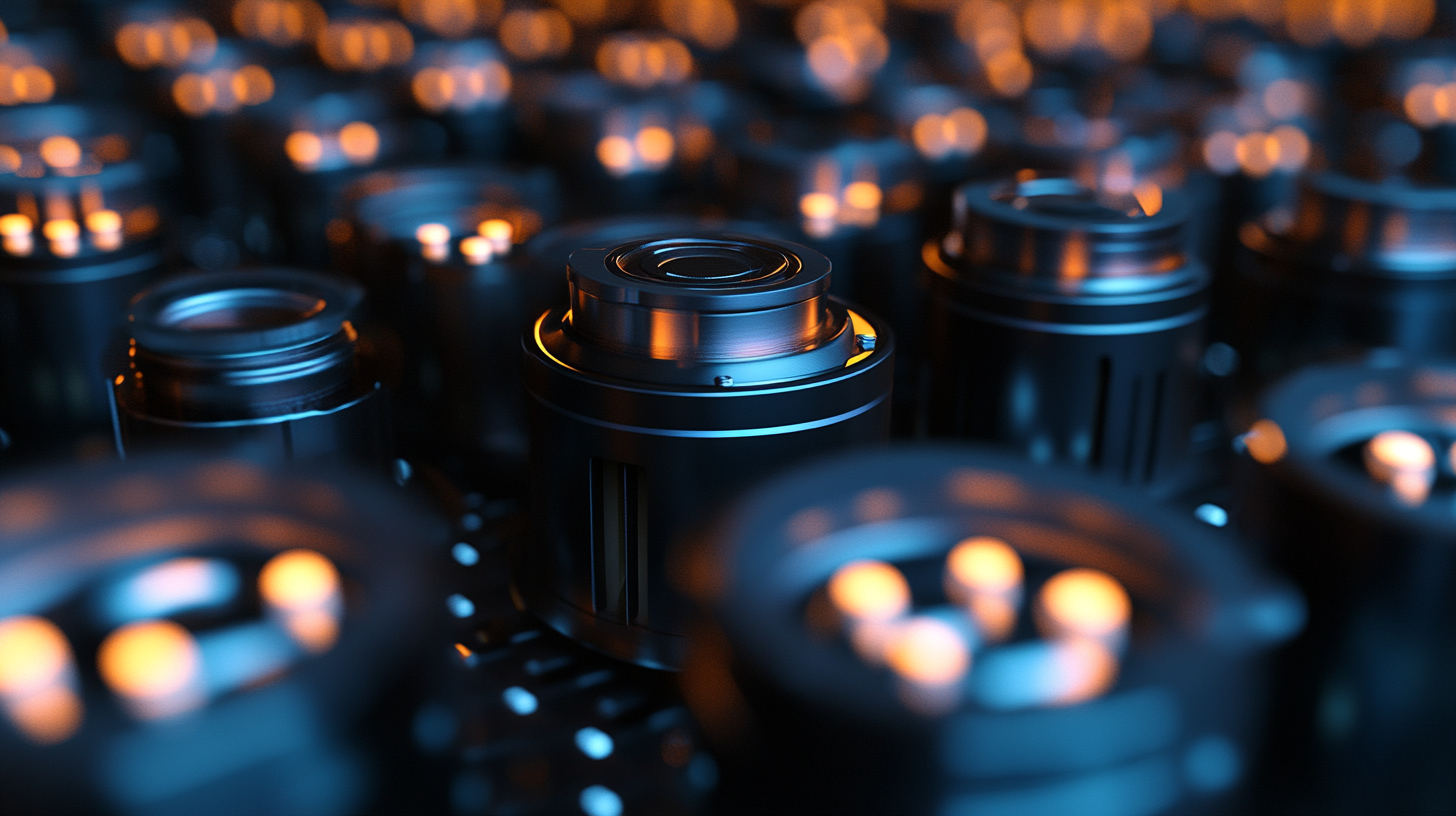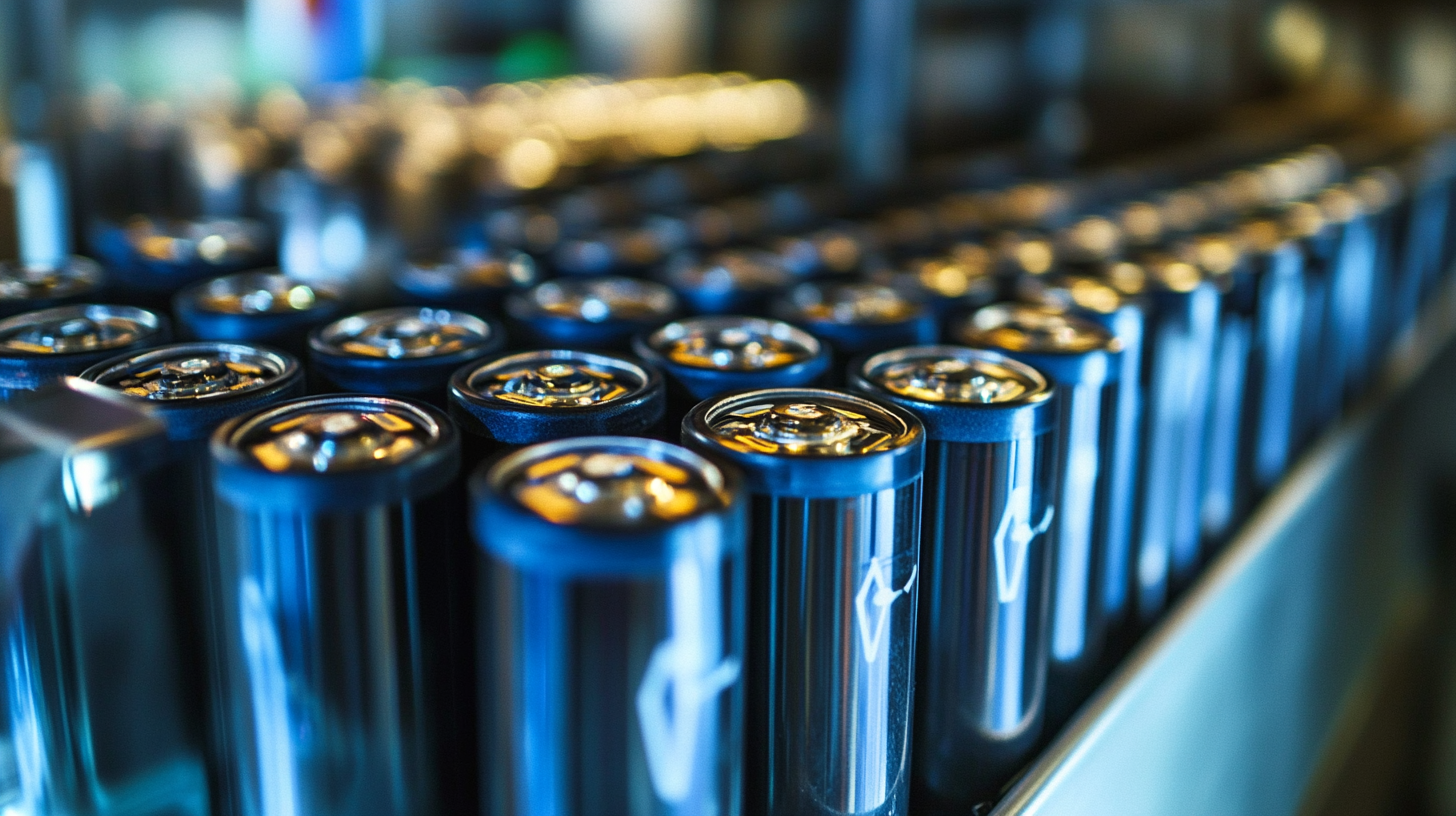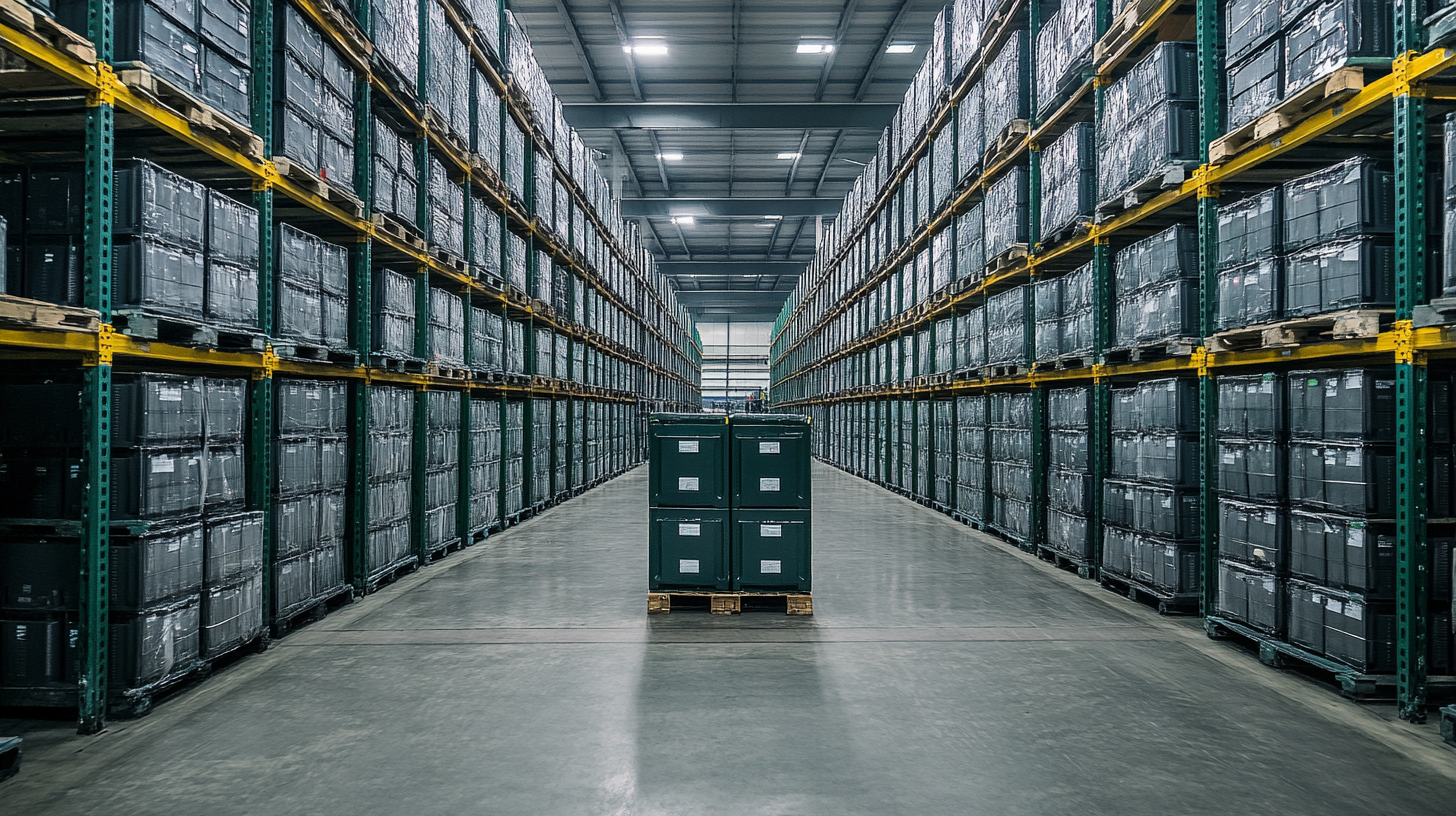Leave Your Message
In the face of escalating trade tensions and reciprocal tariffs between the United States and China, the resilience of Chinese manufacturing continues to shine, particularly in the realm of advanced technology. One of the notable advancements is the establishment of the state-of-the-art 18650 Battery Pilot Line, designed to streamline the production of high-performance lithium-ion batteries. This innovative facility represents not only a significant leap in manufacturing capabilities but also a strategic response to external economic pressures. As global demand for energy storage solutions escalates, the 18650 Battery Pilot Line positions China at the forefront of the battery market, allowing it to effectively compete while navigating the complexities of international trade. Through this development, China demonstrates its ability to adapt and thrive, leveraging technological advancements to sustain growth and innovation, despite the ongoing tariff challenges that loom over the manufacturing sector.

Chinese manufacturing has showcased remarkable resilience in the face of ongoing tariff challenges posed by the United States. Despite a complex trade environment, manufacturers have adapted by investing in innovative technologies and streamlined production processes. The recent launch of the best 18650 battery pilot line exemplifies how Chinese companies are not only overcoming obstacles but also pushing the boundaries of technological advancement. This pilot line promises to enhance efficiency and minimize costs, allowing manufacturers to remain competitive on the global stage.
The ability of Chinese manufacturers to pivot and thrive under pressure highlights their commitment to sustainability and growth. By focusing on the development of high-quality products, such as advanced lithium-ion batteries, these companies are not only meeting domestic demand but also positioning themselves as key players in the international market. As tariffs continue to present challenges, the strategic focus on innovation and quality will ensure that Chinese manufacturing remains a stronghold in the global economy, showcasing a unique blend of resilience and foresight in turbulent times.
The advancements in the production of 18650 batteries have become a cornerstone of industrial growth, particularly in the Chinese manufacturing sector. Recent reports indicate that the global demand for lithium-ion batteries, which includes 18650 cells, is expected to reach approximately 1,200 GWh by 2025, growing at a remarkable CAGR of around 20% from 2020. This surge in demand is primarily driven by the booming electric vehicle (EV) market and the increasing need for energy storage solutions.
Innovations in battery production processes, such as the implementation of advanced automation and quality control systems, are enhancing operational efficiency. A study by the International Energy Agency stated that improvements in battery technology could reduce production costs by up to 30% over the next decade. Moreover, the development of cutting-edge materials, like silicon anodes, promises to increase energy density significantly, allowing for longer-lasting batteries and more efficient performance. This dynamic improvement not only supports the rise of sustainable technologies but also positions China as a leader in the battery manufacturing landscape despite the ongoing US-China tariff challenges.
The landscape of Chinese manufacturing has been significantly reshaped by the imposition of tariffs, particularly in the wake of escalating trade tensions with the United States. These tariffs have led manufacturers to adopt innovative strategies to maintain their competitive edge. While some companies have faced challenges in sourcing materials and components, others have leveraged this situation as an opportunity to enhance their production capabilities. By investing in state-of-the-art technologies and streamlining operations, manufacturers are not only complying with new regulations but are also setting themselves up for future growth.
Among these advancements, the development of the best 18650 battery pilot line is a prime example of how Chinese manufacturers are responding to tariff-related pressures. The 18650 battery, widely used in various applications from electric vehicles to consumer electronics, has become a focal point for innovation. By perfecting production techniques and ensuring high-quality outputs, Chinese manufacturers are positioning themselves as leaders in this critical sector. As a result, despite the challenges posed by tariffs, the ability to adapt and innovate continues to foster resilience and growth within Chinese manufacturing.
This chart illustrates the annual production volume of lithium-ion batteries in China from 2018 to 2023, showcasing the effect of US-China tariffs on manufacturing.
In recent years, China's manufacturing sector has demonstrated remarkable resilience and adaptability, particularly in the face of increasing US-China trade tariffs. At the forefront of this transformation is the development of cutting-edge technologies and innovation, which have significantly bolstered the country’s production capabilities. According to a report by the International Energy Agency, the global demand for lithium-ion batteries, particularly 18650 cells widely used in electric vehicles and portable electronic devices, is projected to grow by over 20% annually through 2025. This surge in demand has catalyzed advancements in manufacturing processes, enabling Chinese companies to become leaders in battery production.
One notable illustration of this trend is the establishment of advanced pilot lines for 18650 battery production. These lines utilize state-of-the-art automation and artificial intelligence, streamlining operations and enhancing efficiency. A report from BloombergNEF indicates that China currently dominates the lithium-ion battery production market, accounting for over 75% of global capacity. This dominance is not merely a function of scale; it reflects the country’s continuous investment in R&D and innovative manufacturing techniques. By integrating smart technologies, Chinese manufacturers have not only improved quality and reduced costs but also positioned themselves to meet the evolving needs of a rapidly changing global market, setting an example of how innovation can thrive despite external challenges.

The ongoing trade tensions between the US and China have prompted a reevaluation of global manufacturing dynamics, particularly in sectors such as battery production. Chinese manufacturers have made significant strides in establishing robust pilot lines for 18650 batteries, which are essential for various applications from electric vehicles to consumer electronics. Amidst tariff challenges, these advancements serve as a testament to China's resilience and adaptability in the face of global economic pressures. By investing in innovative technologies and refining production processes, China is positioning itself not just to withstand tariffs but to thrive.
In contrast, other global industries face a more complex landscape. While some manufacturers in countries like the US and Europe are attempting to bolster local production, many still grapple with high costs and supply chain disruptions exacerbated by tariffs. This comparative analysis reveals that China’s manufacturing prowess, bolstered by strategic investments and government support, allows it to maintain a competitive edge in various high-tech sectors. As companies globally adjust to the realities of tariffs, the ability to innovate and scale will determine who can effectively navigate these challenges and sustain growth in the evolving market.

